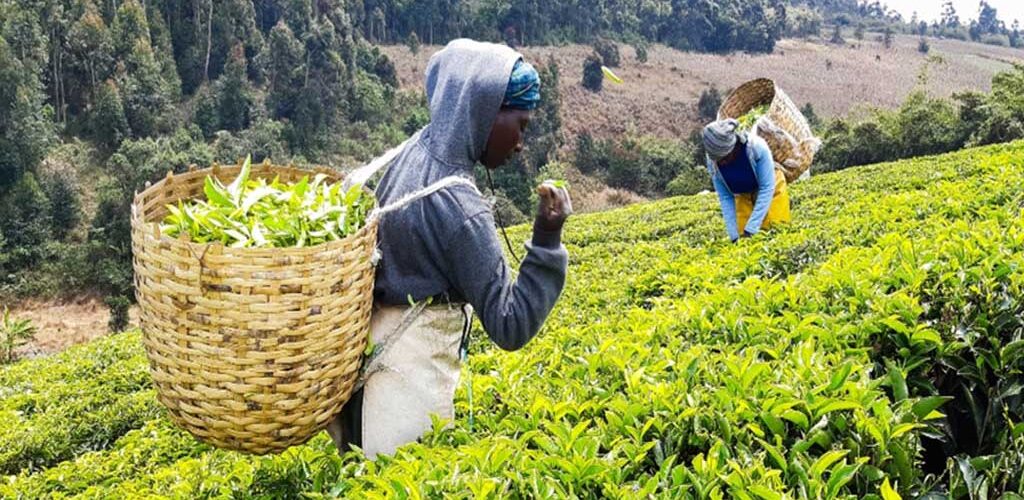
- May 26, 2025
- By: MF Tractors Botswana
- in: Agricultural Machinery, Agriculture Farming, Farm Equipment, Massey Ferguson Tractors

For nearly two decades, the government of Botswana has used Economic Diversification (ED) as a developmental strategy, with the primary goal of lowering the country’s reliance on the mining industry by encouraging expansion in other areas. Despite agriculture’s fall from first to second last place in GDP contributions throughout time, it was not ignored in the effort to broaden the economy’s base of support. Substantial financial aid aimed at encouraging diversification in the industry has been made available; among the most important of these initiatives was the Financial Assistance Policy (FAP). Non-traditional farming including horticulture, dairy, and poultry has benefited from FAP funding.
Agricultural output has declined because (1) other economic activities have expanded at a far faster rate and (2) agriculture has grown slowly when considered in isolation. The public’s large investment in agriculture, which aimed to promote, among other things, a broader range of agricultural products, has coincided with a steady fall in the sector’s performance. Several initiatives have been launched in recent years to increase agricultural output and productivity, including in the grain business. To further encourage the use of agricultural machinery, technology adoption, and increased productivity, the two most common farm-level programs are the Arable Lands Development Program (ALDEP) and the Accelerated Rainfed Arable Program (ARAP), which supplied free capital and operating inputs to farmers.
While ALDEP may have helped alleviate poverty in some individual households, it had little effect on the economy as a whole. It is true that ARAP increased crop acreage, production, and yields, but these improvements were not maintained beyond the end of the program’s funding term. It was the FAP program that provided the most assistance to non-conventional farmers. Despite the very high failure rate of funded initiatives, this program helped to diversify agriculture in several ways.
Growth in the agricultural sector is essential, despite the fact that it now contributes just a small amount to GDP. This is due to the fact that agriculture is still the primary source of income and food for the vast majority of rural families. As a result, unemployment and urban poverty may rise if the agricultural industry is not given the opportunity to expand and diversify. This suggests that agricultural policy should be maintained as one of the possible sources of economic diversification.
This includes bolstering initiatives that encourage a climate conducive to private investment in mechanized resources like agricultural machinery, farm implements, etc., and that foster an atmosphere that encourages healthy competition. The goal is to encourage the growth of robust, dynamic, and competitive private sectors. Financial, advisory, consulting, and technical aid; business information; consultancy capacity building; and technology transfer are all included in private sector development. Finance, guarantee facilities, and technical assistance for the launch, maintenance, and revitalization of private businesses are at the heart of the Cotonou Agreement (CA).
To increase agricultural competitiveness and diversification, the private sector in Botswana must apply for funding from this facility; submissions must, however, highlight ideas with sufficient potential for success. Private companies are urged to assess their potential gains from boosting agricultural output. The Ministry of Agriculture, it would seem, has to do a better job of getting the word out in order to educate the private sector on how to apply for and get EU funding in various sectors.
Slow technological transfer and a dearth of agricultural machinery contribute to Botswana’s poor crop yields. Advanced agricultural methods would be taught in practical settings and used as part of the program. There has to be a stepped-up effort, which necessitates funding for additional programs that help farmers enhance their technical performance. Some of these projects are carried out by non-state players.
The creation of new technologies by agricultural research organizations is also crucial. Finding and understanding how plants and animals fare in various environments is important, but so is enhancing their performance so they can make a bigger contribution to the economy. For this reason, the exploration of other agricultural commodities is essential. Investigating veld goods, for instance, is one area where the market may be expanded. Institutions tasked with agricultural research should look at this field thoroughly. Massey Ferguson Tractors Botswana offers a variety of agricultural machinery including Massey Ferguson tractors for sale and other useful farm implements that will allow Botswana’s farmers to enhance their productivity. Help is likely to be sought by farmers in the areas of locating the right agricultural machinery and farm implements for sale, as well as acquiring the knowledge to properly operate and maintain such items. Botswana’s farmers can rely on Massey Ferguson Tractors Botswana to provide them with the tools they need to increase crop production.

Post a Comment